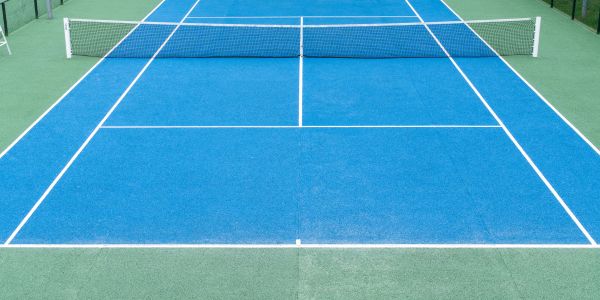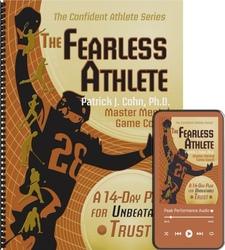
Does a Loss or Bad Game Have an Impact on You Mentally?
As an athlete, you will experience losses, mistakes, and off-games. It’s unavoidable. No athlete is perfect, nor should you hold yourself to such a standard.
However, bad games are not the most significant hindrance to an athlete’s growth in their sport. That distinction goes to how you react to those events.
Negative responses to undesirable outcomes can have a prolonged impact on an athlete’s development and future performances. If you are unable to let go, your confidence will plummet.
If you don’t process your emotions, the memories of those events will trigger the same intense emotions at the start of your next competition.
If you fail to learn from those events, you will have repeat performances and stunt your athletic growth.
The three most common counter-productive responses to losses, mistakes, and bad games are:
- Immersing yourself in negative emotions. Motivation decreases when you get stuck in frustration, sadness, or hopelessness. Not only will you not want to compete, but you won’t want to train.
- Failing to evaluate your performance. Many athletes just want to block out the experience without looking at what happened or how they can learn to improve future performances.
- Assuming that a poor performance is an indictment of their ability. This perspective causes your self-esteem and self-confidence to bottom out. The fact is that we choose our responses to events.
You can respond to losses, mistakes, and bad games negatively or in a productive, empowering way.
First, you can learn ways to decompress and process your emotions. This will allow you to handle disappointment in the future and help you think more objectively about the competition.
Secondly, you can choose to look for feedback from the competition, both the good and the bad. Sometimes, athletes only focus on the negatives and ignore the small successes.
Recognizing what you did well helps keep your confidence stable. Identifying your mistakes will allow you to design a plan for improvement, which improves motivation.
Lastly, you can choose to see the competition as an isolated, singular event instead of a trend. This response alleviates stress and pressure, allowing you to perform freely in future competitions.
Let’s look at an example from the 2025 NBA playoffs.
The Detroit Pistons were looking to win their first playoff game in 17 years. The Pistons were shooting above 50% from the three-point line and leading the New York Knicks by eight points heading into the fourth quarter.
However, the Knicks went on a 21-0 run over a four-and-a-half-minute span to win the game, 123-112. The Pistons could have responded by thinking, “Here we go again. We are not good enough to win big games. We are outmatched and will probably lose the series.”
While the team was upset, Veteran Piston Tobias Harris was not “all doom and gloom.” Harris recognized the team fell apart late in the game, but also identified the good aspects of the team’s play.
Harris saw the game as an isolated event and was excited for the challenge of Game 2.
HARRIS: “For the majority of it, we did a really good job staying composed out there. It’s just one game of a series. Playoff basketball is about how you respond. [How you respond] is one of the biggest things in this league. I’m excited to see how we respond.”
Mistakes, losses, and off-games are inevitable parts of sport, but they don’t define your potential; your response does.
When you learn to process emotions, find the feedback, and move forward confidently, you build mental toughness and grow your game.
After a tough game, write down three things you did well and three things you want to improve, no matter how small. This simple habit helps shift your mindset from defeat to development and keeps your confidence intact.
Related Sports Psychology Article
- How to Win Close Competitions
- How to See Loses as Lessons
- Perfectionist Athletes Who Mentally Lose Control
The Fearless Athlete (Digital Download)

“The Fearless Athlete” audio and workbook program helps you overcome fear and anxiety to perform with trust and confidence. Learn how to overcome the mental handcuffs of perfectionism and fear of failure, leading you to perform with unshakeable trust in your skills.
With the use of the ‘The Fearless Athlete’ and ‘Ultimate Sports Parent’ workbooks, I see subtle but significant results in a short period of time. My young athlete did not even know about positive self-talk until we started the program.”
~Adam, Sports Parent

